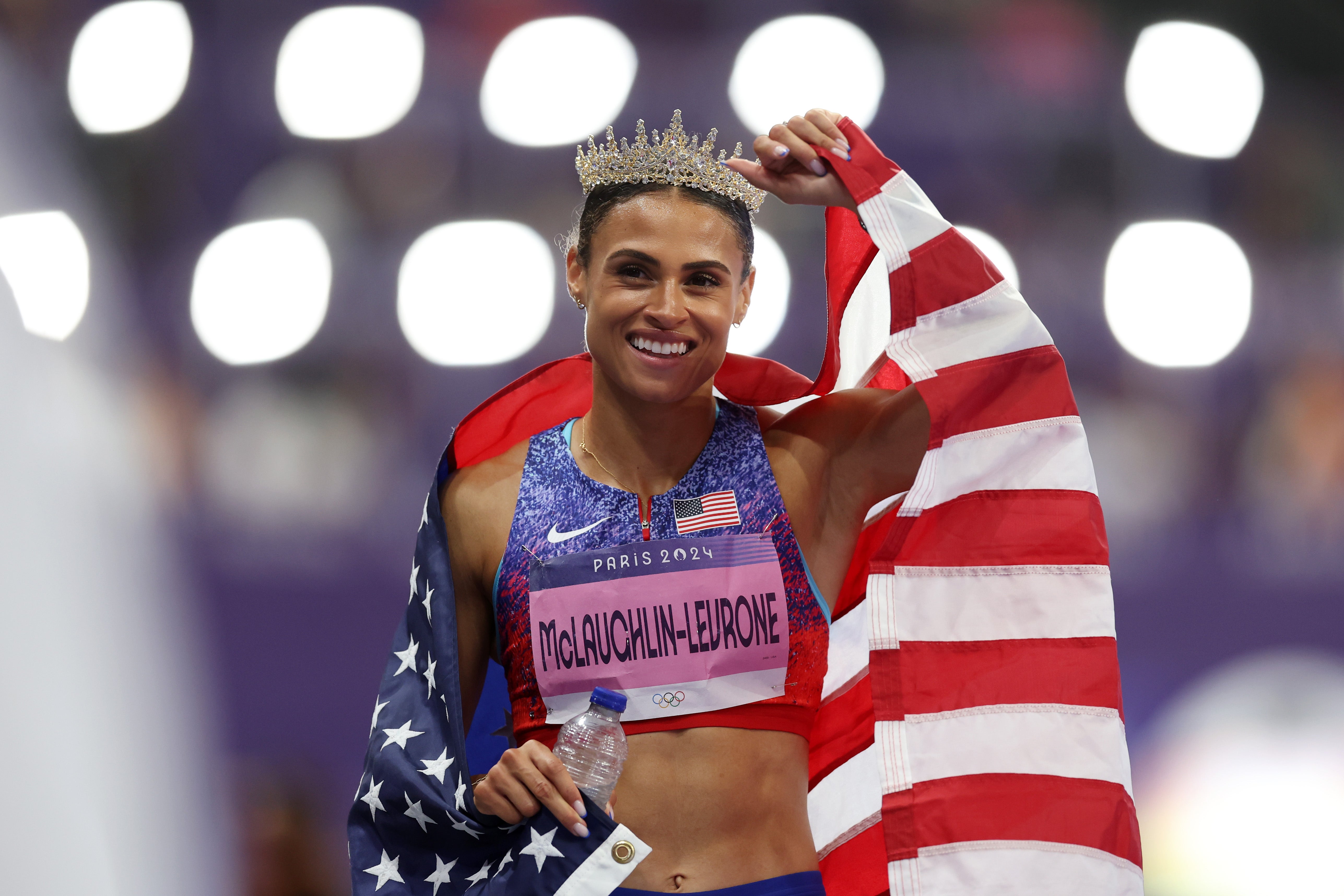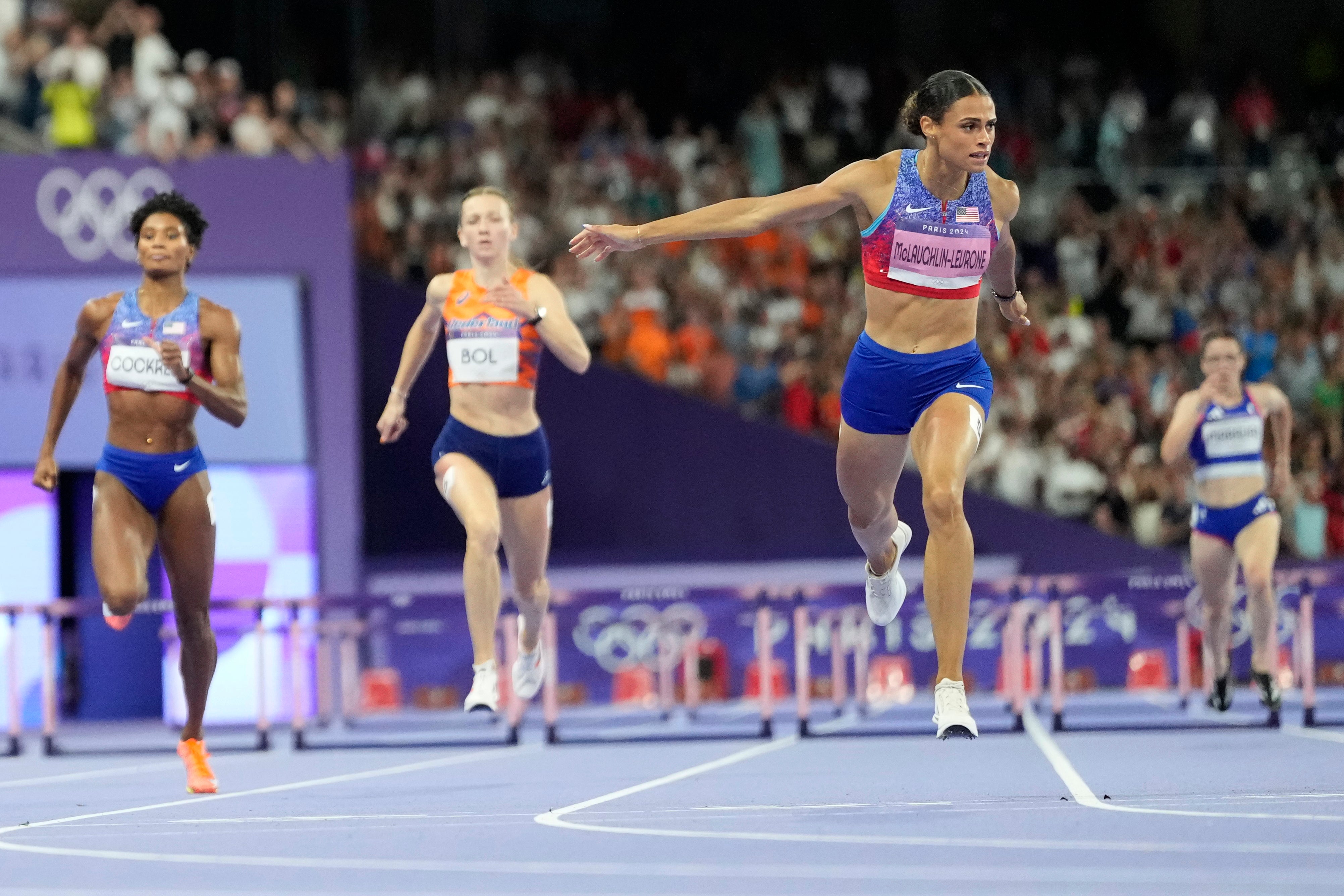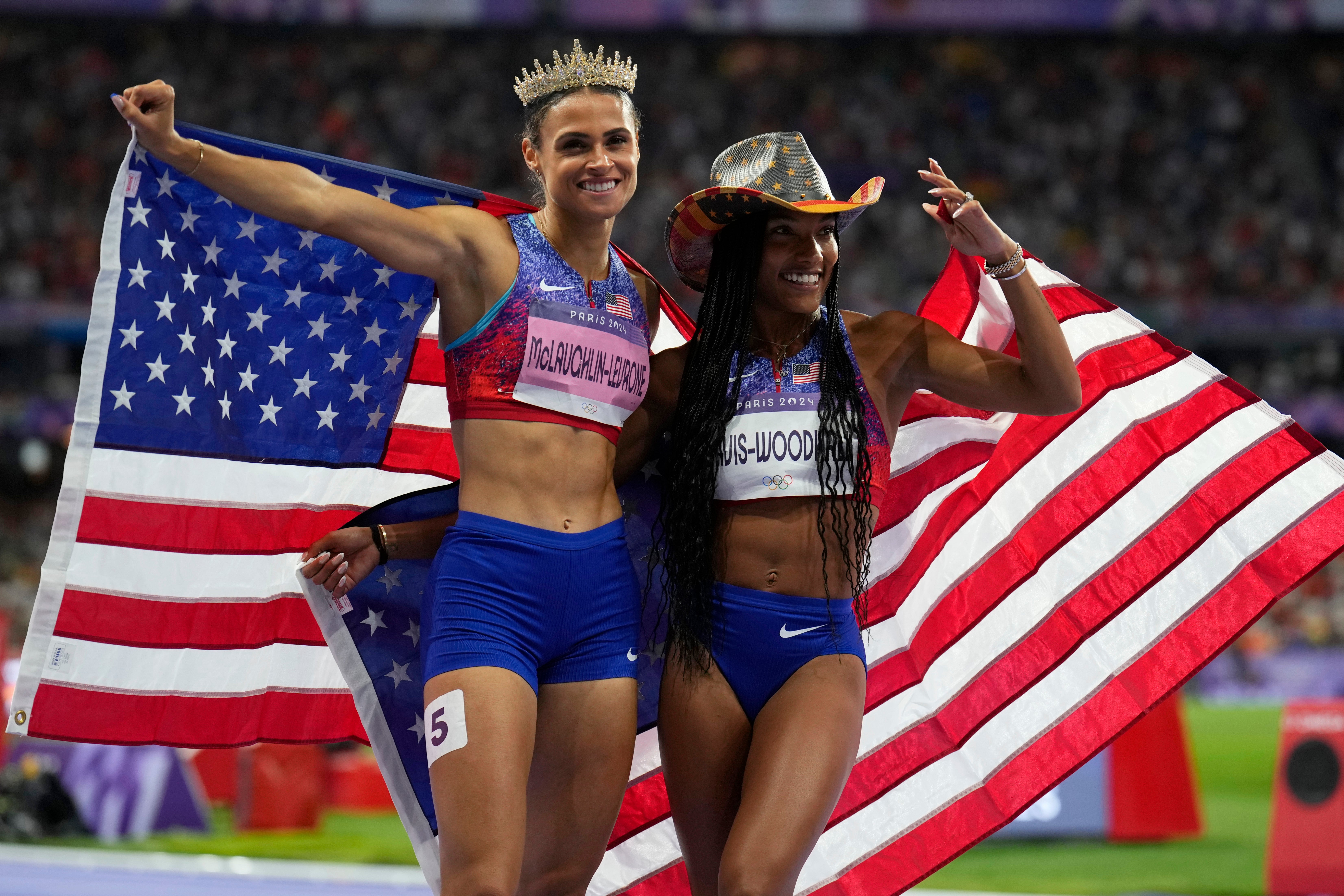The mind-blowing stat behind Sydney McLaughlin-Levrone’s stunning 400m hurdles world record at Paris Olympics
The American stormed clear of her rivals to claim gold and shave nearly three tenths of a second off the world record she set at the US trials in June

There will come a point, presumably, when Sydney McLaughlin-Levrone reaches the outer limits of human possibility in the women’s 400m hurdles and stops rewriting the laws of physics. Not here, not yet. In front of a rapt Stade de France crowd in Paris, she tore another chunk off the world record in a stunning defence of her Olympic crown.
The race was billed as a showdown between McLaughlin-Levrone and her Dutch rival Femke Bol, the only two women in history to break the 51-second barrier. But the American was on another plane, winning gold in 50.37 sec, well clear of the rest.
In doing so she shaved nearly three tenths of a second off the record mark she set at the US trials in June. Few athletes have ever delivered brilliance with the consistency of McLaughlin-Levrone, who has now run the fastest time in history in all of her last six major championship finals.
Behind her, Bol settled for bronze in 52.15 sec after she was beaten down the home straight by USA’s Anna Cockrell, who clocked 51.87 sec for silver.
There are some mind-blowing stats behind McLaughlin-Levrone’s run. Consider a comparison with the women’s 400m event – a flat race with no hurdles – which concludes with the Olympic final on Friday night. There were 24 semi-finalists, and had McLaughlin-Levrone ran this world record alongside them, with 10 barriers to clear, she would have been ninth quickest, just missing out on a place in the final.
She had actually signed up to run the 200m and 400m events at June’s US trials, before pulling out of both when she realised how congested her schedule would be in Paris. Instead she chose to concentrate on the 400m hurdles – “my first love” – and defending her Olympic title won in Tokyo. She did it by bursting through to a whole new time zone.

“I’m grateful to God for this opportunity, grateful to be celebrating my birthday like this,” said McLaughlin-Levrone, who turned 25 on Wednesday.
“Every race is you against 10 hurdles. There are people who are going to push you but it doesn’t matter if you don’t focus on the barriers in front of you. That was my focus, me trying to be as efficient as I could over my 10 hurdles, trying to lower that time every time.”
How does she keep finding new ways to go faster?
“There are so many ways you can run it, there are so many different ways to get better. Between stride pattern, touchdown time, flat speed, it’s always just trying to improve those things. There’s no such thing as a perfect race, but the closer and closer we can get to 49 seconds, I feel like it’s inching there.
“I’ll have to go back and watch the race. It’s also just building that capacity in your legs to handle going that fast for that long.”
Despite her achievements, there was still an element of mystery coming into the race. McLaughlin-Levrone had only raced Bol twice before and not at all for more than two years.
She ran a world record 50.65 sec in the trials to book her place in Paris, but Femke Bol responded with a 50.95 sec at a pre-Games meeting in Switzerland, and the seeds of rivalry were sown.
Dutch fans certainly believed. Pockets of orange filled the Stade de France and the roar that greeted Bol’s arrival let her know they were here.
Bol got off to a good start and there wasn’t much to choose between the favourites entering the back straight. But there McLaughlin-Levrone settled into a rhythm, looking perfectly balanced, taking each hurdle like a mild inconvenience rather than a 76cm-high barrier.
Bol faded, and afterwards revealed her frustration with a time more than a second shy of her sub-51 ran last month.
“All you want to do in an Olympic final is to put up your best race,” she said. “I screwed it up. I’m not sure where I made the mistake. I just got so much lactic acid with 300m to go. I’m not sure why, I really have no explanation. This is just a bad race. I’ll look at the positives, I’ll talk to my coach. I’ll try to enjoy the bronze.”

Cockrell was the benficiary of Bol’s lacklustre race, although she gave most of the credit to Beyonce.
“I’m just overwhelmed, I’m overcome,” said the 26-year-old from California. “There’s not much you can say when you have a PB and you win a medal. It all came together in the best possible way. My coach just told me to have fun, be myself, go out there and be Beyonce.
“I was singing Love On Top in the call room, so shout out to Beyonce. I’m really happy. I’m ugly crying, but I’m really happy.”
By the time she crossed the line, McLaughlin-Levrone was already off celebrating. What more ground can she break? The 400m flat is a target and it is not hard to imagine her attempting both events in Los Angeles in four years’ time.
Perhaps there was a clue as to her next trick in the replays of this win. She dipped five metres too early and was already lurching back upright when she crossed the line. McLaughlin-Levrone left time on the road, and that means the 50-second barrier is not safe.
“I wasn’t looking at the clock,” she said. “When I crossed that line I was grateful. I was hoping it was a little faster.”
Join our commenting forum
Join thought-provoking conversations, follow other Independent readers and see their replies
Comments
Bookmark popover
Removed from bookmarks